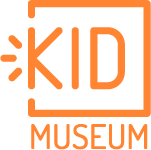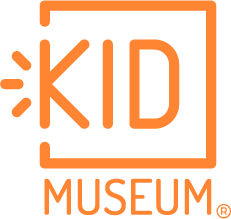
How can we best prepare today’s kids for the future economy? What qualities will employers look for in tomorrow’s employees? Is it important that every graduating senior know how to code? These are a few of the topics that were discussed at KID Museum’s recent Community Conversation, “Future-Proofing the Next Generation,” moderated by author Daniel Pink.
Distinguished panelists included Kevin Beverly (President & CEO, Social & Scientific Systems), Paul Roehrig (Head of Strategy, Cognizant’s Digital Business), Jack Smith (Superintendent, MCPS), and Jean Wallace (Vice President, Workforce Solutions & Intelligence, Lockheed Martin).
In a crowd-sourcing exercise, audience members identified “resilience,” “adaptability,” “curiosity,” and “creativity” as the top qualifications kids will need for future success. To this list, panelists added literacy, numeracy, the ability to speak, listen effectively, problem-solve and collaborate.
Panelists agreed that while not every student needs to become proficient in technical skills like coding, all should acquire at least a basic familiarity with those skill sets. Furthermore, all students need to become comfortable working as part of a team, engaging in creative problem solving, and learning from failure. These kinds of high-quality learning experiences, from pre-K on up, both inside and outside the classroom, are the best foundation to prepare students for a fast-paced, highly technical world.
The panel also agreed that schools do not bear sole responsibility for equipping students with these skills. Rather, schools, industry, community/government institutions, and nonprofit educational partners — like KID Museum — must join together to erase structural disparities and ensure access and opportunity for all, regardless of race, gender, or socioeconomic status.
MCPS produced this video highlights clip:
For anyone who may have missed the event, here are a few quotes from the evening:
“Anyone can be taught how to code. But the real question is, can they think? Writing code is the easiest part. I can teach people how to code, but I can’t teach them how to think, how to manipulate a problem.”
– Kevin Beverly, President & CEO of Social & Scientific Systems
“The point is for all to have access. Kids without access lose agency and efficacy. We must have that for our students, and it must start in pre-K.”
– Jack Smith, Superintendent of Montgomery County Public Schools
“The future is about learning and failing. And about learning to interface between human and machine — and what that looks like in terms of skills. Enable yourself as well as your kids to explore. Learn new things. Constant learning is what it’s all about.”
– Jean Wallace, Vice President, Workforce Solutions & Intelligence at Lockheed Martin
“There’s apprehension about the future. If someone is trying to convince you that the future is doomed, that we’ve reached ‘peak human,’ and technology is going to destroy humanity, don’t believe them. Keep in mind that Socrates argued against the technology of the written word! Ask good questions, be curious, form alliances; it’s going to be ok.”
– Paul Roehrig, Head of Strategy for Cognizant’s Digital Business & author of What to Do When Machines Do Everything.
KID Museum hosts ongoing Community Conversations as part of its commitment to serve as a vital hub where education, industry, government leaders, and the community can come together to reimagine education in the 21st century. Find out more about how KID Museum is “future-proofing” kids for tomorrow’s economy: https://kid-museum.org/proven-impact/.




